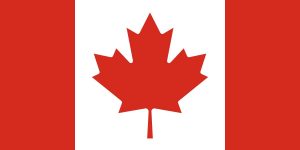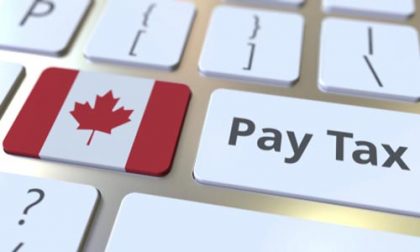Canada Tax Agency Targeting High-Profile Online Poker Pros
One of the online-poker stories nearly slipping through the cracks in recent days is that Canada is likely the latest country to embark on back-tax collection measures against prominent poker pros who can demonstrably be shown to have earned significant sums while playing online. According to a feature a few days ago in the French-language Journal du Montreal, the Canada Revenue Agency (CRA) has taken interest in more than a dozen online pros who have recorded online wins.
The Quebec-based paper named only five of the pros, based on their being residents of that province. Those five players are Sammy Lafleur, François Billard, Vincent Jacques, Pascal Lefrançois, and Marc-Étienne McLaughlin. Each of the five, according to the report, is being investigated for possible underreporting or nonreporting of poker income generated from 2014 to 2016.
 The five players above were each verified to have received queries from the CRA. According to a letter provided by Billard’s attorney to the Journal du Montreal, “The verification concerns the [player’s] income from his poker game activities; the CRA is investigating whether the way the defendant operates his poker makes his earnings taxable.”
The five players above were each verified to have received queries from the CRA. According to a letter provided by Billard’s attorney to the Journal du Montreal, “The verification concerns the [player’s] income from his poker game activities; the CRA is investigating whether the way the defendant operates his poker makes his earnings taxable.”
Canada calculates its tax liabilities for poker and other forms of gambling in ways that differ from similar countries, including the United States. In Canada, income from true “games of chance” is not taxable; however, once the games become an ongoing source of professional income, then that income becomes taxable. All of the pros being investigated have been deemed to be such career-professional players.
The effort appears to be targeting major poker cashes both live and online, and the Montreal news outlet claimed that the CRA has been trying in vain to receive complete income records from poker for many of the players since 2017, without success. Regarding online-poker activity, the CRA continues to seek “transaction histories, transfers between players and withdrawals and deposits from each of them.” Obviously, the networking nature of the highest-stakes online play may well bring more Canadian players under the CRA’s investigative spotlight.
The recent report also claimed the CRA was looking into lifestyle indicators that indicated lavish income. Using Lefrançois as an example, the CRA sought contract details on the lease of his high-end Audi S5.
In now being involved in such a broad investigation, Canada’s tax authorities join a growing list of national agencies actively pursuing online poker pros for supposedly unreported income. Canada’s activities closely resemble a program launched by Sweden’s tax authorities a few years back, but that’s just one example. Among other countries who are known to have taken special interest in high-stakes poker pros’ reported income are Spain, Israel, Germany, Norway — the list goes on.
(As an interesting aside, quite some time back, I once saw a reasonably well-known German pro — who I learned later was participating under a munged version of his correct legal name — literally flee a poker table on multiple occasions rather than be photographed. Umm, way to make it obvious. …)
Anyhow, it’s also worth noting that these countries’ tax-collection efforts have been aided by the presence of online databases ranging from CardPlayer and The Hendon Mob to PocketFives that list both online and live tournament results. Being incorporated in Europe, The Hendon Mob, in particular, was subject to considerable player pushback on the publishing of those results. Though the players’ supposed claims were likely an abuse of the EU’s data-protection laws, The Hendon Mob nonetheless took the legally safer (and potentially less expensive) road and now allows EU-based players to effectively remove themselves from THM and GPI listings. Canada, however, does not have EU-style data-privacy laws, which makes it easier for the CRA to conduct such investigations.




















COMMENTS